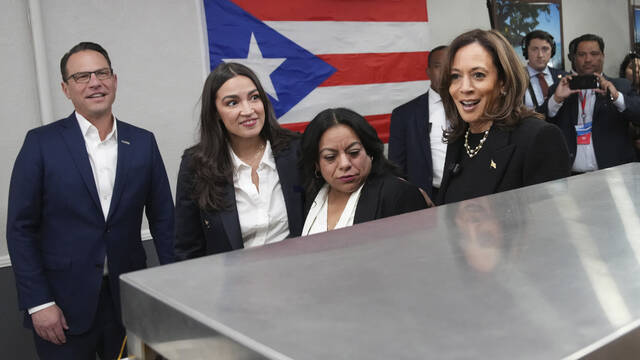In early September, news broke that the Senate may include a transformative climate policy in the budget reconciliation package. Specifically, the Senate is considering “a potential tax on the carbon content of fossil fuels starting at $15 per ton,” paired with “rebates for low-income taxpayers and a border-adjustment tax aimed at ensuring foreign companies don’t get an advantage.”
This discussion is an encouraging development for anyone who cares about solving climate change. President Biden has named a goal of 50% emissions reductions by 2030, but modeling shows the climate policies proposed so far may only deliver 45% emissions reductions. Adding a price on carbon bridges that gap, ensuring that America meets the targets to prevent the worst impacts of global warming.
The recent back-to-back climate disasters illustrate that we cannot wait a moment longer to take impactful action to slow climate change. Carbon pricing is an essential and important component for reducing carbon emissions at the speed needed. Economists say carbon pricing is “the most cost-effective lever to reduce carbon emissions at the scale and speed that is necessary.”
Citizens’ Climate Lobby would like Rep. Mike Doyle and Sens. Bob Casey and Pat Toomey to ensure that a robust price on carbon is part of this package of policies. For us here in Pittsburgh, a policy like this would mean cleaner air and safer drinking water, and would keep us healthier. Allegheny County’s air quality received an “F” from the American Lung Association, and decreasing the particulates from burning fossil fuels would help improve our air quality and help kids with asthma.
Here are three key reasons why it is essential for the U.S. to include carbon pricing in our strategy to address climate change:
• First, it puts us on track to net-zero by 2050. The carbon-fee-and-dividend policy prescribed in the Energy Innovation and Carbon Dividend Act (House Resolution 2307) sets a price that starts at $15 a ton of carbon dioxide and increases $10 a ton annually. Resources for the Future calculates that by 2030 this policy will reduce U.S. emissions more than 50% below 2005 levels, which is in line with Biden’s commitment.
• Next, it’s a fast, effective policy across the whole economy, spurring emissions reductions in every sector — electricity, transportation, industry, commercial/residential real estate, agriculture and land use. It’s also quick to set up, leading to meaningful impact in a matter of months.
• Finally, some, or all, of the revenue could be used to give money back to Americans. Money collected from fossil-fuel companies can be given as a dividend, or “carbon cash back” payment, to Americans. This protects low- and middle-income Americans as we all transition to a clean energy future. Studies show that monthly carbon cash-back payments are enough to essentially cover increased costs of 85% of American households, including 95% of the least wealthy 60% of Americans.
Beyond those reasons for action here at home, we’re under pressure from other countries that are already pricing carbon. The European Union announced it will impose a carbon border tax, beginning in 2023, on imports from nations that do not have an equivalent carbon price. When this goes into effect, American exporters will be subject to the European carbon tax, placing them at a competitive disadvantage. However, if the U.S. implements its own carbon price and carbon border adjustment, the policy can keep American businesses competitive and motivate more nations to price carbon themselves. The Biden administration has floated a carbon border adjustment, but based on the World Trade Organization’s rules, we would likely need to put a price on carbon here at home, too.
It’s clear that a robust price on carbon is essential to America’s progress on climate change. In the last few weeks, more than 29,000 concerned citizens have reached out to their members of Congress, including Doyle, Casey and Toomey, asking them to support a price on carbon. With our communities increasingly experiencing the effects of climate change, we urge them to use this powerful policy tool.
Dana Siler is a volunteer with the Pittsburgh chapter of Citizens’ Climate Lobby. Mark Reynolds is executive director of Citizens’ Climate Lobby.








